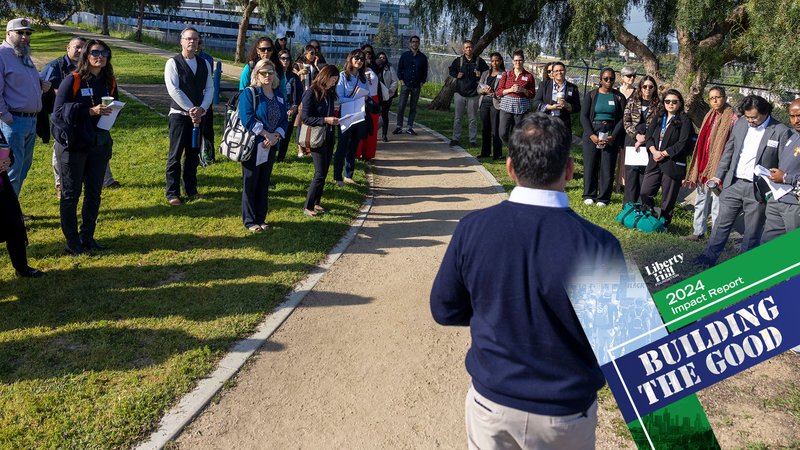The Price of Disinvestment: Why Philanthropy Must Act Now & Remain Steadfast
By Roni Hooper, Senior Director of Foundation & Government Grants
Return to NewsletterAcross the country, vital federal funding in our communities has been frozen or withdrawn. Programs that once served as pillars of opportunity — affordable housing programs, environmental protections, public education, Medicaid and so much more — are being gutted. The impact is felt most by those who already face the steepest barriers: immigrants, trans people, low-wage workers, and communities of color.
Our political, government, and corporate leaders are either complicit in this disinvestment or mounting an ineffective, restrained response. Our strongest defense is the cadre of community organizing groups channeling the collective action of everyday citizens who are demanding their voices be heard.
Here in Los Angeles, a powerful ecosystem of grassroots organizers is doing just that. For decades, these leaders have built coalitions across neighborhoods and issues — from youth justice to housing, from climate justice to economic equity — to turn systems of harm into systems of care. These groups are resilient, strategic, and deeply rooted in community — but the current wave of disinvestment threatens to erode years of progress.
Groups that champion immigrant rights are consumed with protecting their communities from harassment and deportation. Organizations that spent several months setting up historic environmental justice projects funded by the EPA are now laying off staff. Advocacy groups calling for alternatives to incarceration for young people of color are labeled “DEI programs” that must be shut down. The list goes on, and no social justice group is untouched.
Those of us on the right side of history must throw down all we have right now to support community organizing and commit to staying for the long haul.
A Call to Philanthropy
- Prioritize community organizing and movement building. If necessary, realign your funding areas, outreach and application materials to engage groups that address systemic injustice.
- Leverage local experts. Contribute to pooled funds and intermediaries who know the field and the frontlines.
- Increase resources. Consider boosting your annual payout.
- Replace restrictions with relationships. Get to know your grantees and give them unrestricted support so they can be nimble and efficient.
- Invest in regions that can lead the way. In Los Angeles, our ecosystem is strong, experienced, and ready to lead.
- Prepare to persist. While the moment is urgent, philanthropy must be a reliable partner over longer timelines than the traditional one- or two-year grant period.

